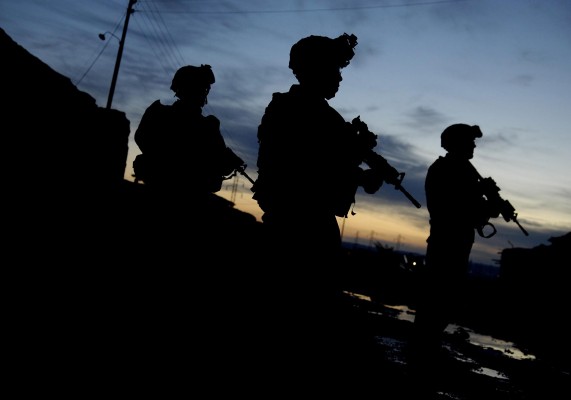Counterpoint: Kurdistan Has a Future, Not a United Iraq
August 28, 2014

The Iraq question is back a third time and worse than ever. It would be difficult for any American president to admit that promoting democracy abroad is the wrong course of action, but it is time to admit the error of our Middle Eastern policies and acknowledge that some parts of the world—especially those with strong sectarian and ethnic divisions—need stability and security more than they want campaign seasons and musical chair government. The age of internationally-sponsored, violent regime change in the Middle East must end. Libya is being torn apart by militias in the absence of Colonel Gaddafi, who was toppled by rebels thanks to our intervention. Another conflict, the Syrian civil war, is in its third year and has become a proxy war between Russia/Iran and NATO. Unfortunately, this has spilled over into Iraq, another country where we’ve promoted our vision of democracy through regime change.
In a campaign of extreme religious self-determination, a small army of Sunni Arab fundamentalists and their anti-government allies have taken up arms against Syria and Iraq. They are led by a group called the Islamic State of Iraq and Syria (ISIS)—they keep changing their name but their goal is to establish an Islamic theocracy between the Eastern Mediterranean and the Tigris—that has seized oil wells, refineries, and military hardware from both countries’ arsenals. It collects taxes in the cities it rules, has a social media presence, and executes or expels unrepentant infidels. The good news is that everyone hates them: the US, the EU, Iran, Russia, and Syria. The bad news is that the current Iraqi government is rather limp, exacerbates religious tensions between Sunnis and Shiites, and is completely incapable of maintaining its territorial integrity. Its army won’t even fight for it, an army 40 times larger than ISIS that retreated leaving behind all kinds of deadly American-made military equipment for the Islamists to pick up.
However, there is one faction in Iraq that ought to be worthy of our support, the Kurdistan Regional Government—even though we are financially obstructing them right now by banning their oil exports because they undermine the unity of Iraq. Kurdistan, or part of it, is an autonomous region of Iraq with a functioning government and military independent of the Iraqi government, which is nominally representative of Iraq’s ethno-religious groups but only effectively controls the Shia Arab provinces of the country. The Kurdish army is known as the Peshmerga in their language, which means “the ones who face death.” They’ve lived up to their name, as Kurdish troops have largely kept ISIS at bay and are protecting hundreds of thousands of refugees that have fled to Kurdish territory.
But the Kurds need lethal aid if they are going to hold out and push back against ISIS; right now they are mostly using old Soviet equipment. In early August, ISIS began launching attacks against Kurdistan, bringing them within range of their capital, Erbil, where there are over two hundred American citizens. The Peshmerga retreated in several of these engagements because of ISIS’ superior modern firepower and weapons captured from the Iraqi army. The United States has so far responded with limited airstrikes and humanitarian aid drops. We also provided air support during the operation to retake the Mosul dam.
This is a step in the right direction but we need to reassess our geostrategic goals in the region before we go any further. The United States needs to accept that a unified Iraq is not going to work any longer and cease its obstruction of Kurdish oil exports. No amount of power-sharing, negotiations, or bribery is going to reverse the ethnic and sectarian tensions that are currently ripping Iraq apart. You cannot have a Western-style democracy in a society where people are killing each other because of their identities. Our focus needs to shift from trying to prop up former British Mesopotamia to supporting the nascent Kurdish state against ISIS regardless of the impact on the failed state it is currently tethered to. A nation is forged in blood and iron, and right now there are three in war-torn Iraq—Kurdistan, Shia Iraq, and Sunni Iraq.
It’s time for the United States to end its ideological support for an Iraq that no longer de-facto exists. The Kurds are the only force capable of maintaining order in at least part of that country, and I believe our insistence that the world live in fixed borders that the people within them want changed is its own human rights violation. States come and go; it’s a fact of civilization. The Kurds have already achieved their self-determination from Iraq on the ground. It’s time to clear up the on-paper formalities that have barred them from international support and acknowledge their independence. Only then can a lasting peace be pursued in Iraq.









